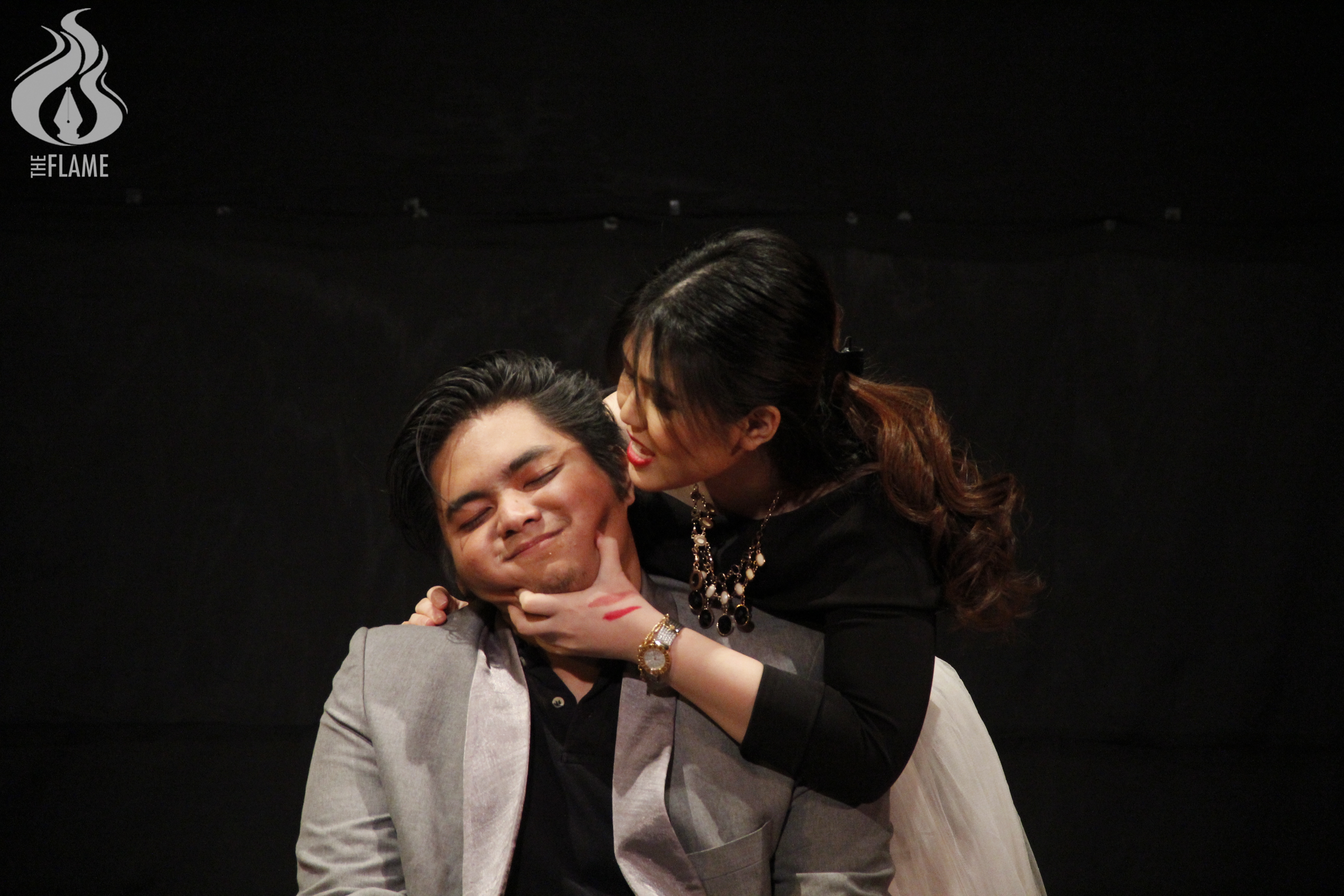By ZYMON ARVINDALE R. DYKEE

DECISIONS MEDITATE on every day in the landscape of exigency. When faced with a dilemma, one is required to arrive at a certain resolve. The arrival, however, at times violates the concepts of time and place. Regardless of the proportion of the endeavor, all decisions result either in development or consequence, in progress or downfall.
In the first set of Teatro Tomasino’s Ekis, two plays explore people’s conclusive moments at times of troubles, and the consequences of choosing to leave. Director Andrea Lubitos, in an effort to invoke intimacy, decides that these moments be encapsulated in confined spaces and happen on a whim.
The first play, an adaptation of Rae Red’s one-act play Kawala, takes place one morning in an elevator at Manhattan Towers. Alwin, the elevator assistant, is on his last day of work for he decides after three years to resign for a more stable job. As soon as he begins his final boarding, he encounters some of the tower’s troubled residents: a television actor named Dante who in his early years gyrated both with women and men in adult films, the rich couple of which the husband is having an affair with a young and attractive resident, and a newcomer named Angel who is moving in with a priest.
Since the play confines burdens into one small space, the feeling becomes close striking to the audience. By the end of the act, it becomes more personal as Alwin reflects on his decision to leave. Hesitation is metaphorically represented through stepping in and out of the lift.
The set, however, lacks the characteristics of an elevator since it places only one stool at the center, and heavily relies on the occasional voice prompt when the elevator arrives at a certain floor. Confinement, then, becomes imaginary.

The second play, a stage reading of Floy Quintos’s Palanca award-winning one-act play Evening at the Opera, portrays a less constricted yet more intimate moment for it takes place in a master’s bedroom. Miranda, at the night of her birthday, is preparing for her husband and governor Bingo Beloto’s gift: an Italian opera. While she applies make-up on her face, she is visited in spirit by her late mother Mamang to advise about Bingo’s corrupt and machismo means, and that she may run away. Yet she shrugs it off, believing that she can handle him. When Bingo finally enters the scene, provincial politics, class and culture, and infidelity from both sides converge into a brawl until one in the end concedes.
In this act, leaving is forged by violence. One decides to escape because of the unsettling, traumatizing experience. Yet at times the idea is overridden by some truth, even if it is rotten. Thus, leaving is forgotten, and one dreadfully submits.
Intimacy and violence are cleverly reinforced in the play through the crafty set design. The king size bed is covered with red satin sheets. Red is often associated with blood, a trace of violence, while satin symbolizes softness in close contact.
Teatro Tomasino’s first set for Ekis, which was staged at the Thomas Aquinas Research Center Auditorium from September 5 to 9, reminds the audience to think twice before taking another step. It purports the idea that decisions may lead to consequences, some of which, such as leaving, are teeming with dread. F




Set A was really awesome. I love how simple yet interesting the play was.